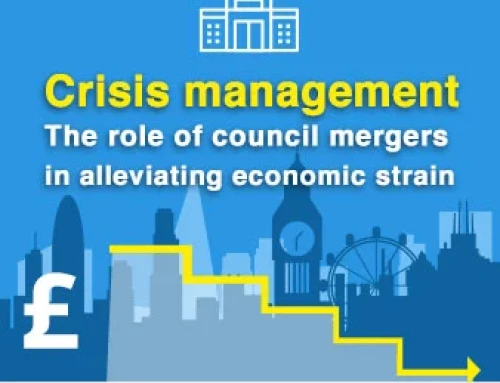How to unify council services in the most effective way?
Addressing the concerns of a country within a country!
Devolution deals are not new for the UK. In 2015, George Osborne charted plans to devolve powers with directly elected mayors. The government received around 38 different devolution proposals. Of them, few got approved. People favored their votes in the ballot box to get directly elected mayors in May 2017. Consequently, Greater Manchester, Tees Valley, the West of England, Liverpool City Region and the West Midlands have been successful in unlocking funding to give better services to their citizens.
Till now, a total of 6 proposals have been made involving Yorkshire. The only deal to get approval was the Sheffield City Region proposal. However, it was canceled as Barnsley and Doncaster council leaders voted against it. Next, the council leaders announced the ‘One-Yorkshire’ deal. It had the agreement of around 17 of 20 councils of the entire Yorkshire. It has been an uphill battle for the supporters of Yorkshire devolution. The final outcome is yet uncertain.
What benefits will Yorkshire devolution offer?
The impending benefits of the devolution deal are huge. Yorkshire forms an important part of the nation. With a population of around 5.3m and a massive geography, Yorkshire can consider major developments with this move. It will unlock a potential of £3 billion in new investment. A dedicated mayor will be able to understand the actual issues and strategize better plans. It means considerable improvements in 4 main areas- infrastructure, transportation, skills and housing development. Will unifying council services be a key project?
But, it’s not going to be a cakewalk…
There’s much more to the transference process. As the councils get united, there will be more pressure to deliver better services. To hold on to the promise to the taxpayers, the authorities need to ensure things are in place in a better way than the present situation. Addressing the concerns closely should bring effective results. Any devolution deal attracts new investment and responsibility to the new cabinet. And they would want to work to their best capability. Also, it means they will need supporting resources to achieve the goals.
How to deliver the promise of better services?
A big question! The main aim of any devolution is to empower that region with best possible services. In the case of Yorkshire, it is referred to as ‘God’s own country’ and it has been blessed with many attractions, talent, and a rich culture. To preserve and develop it further, the authorities have to go the extra mile. Unifying council services will raise the hopes of citizens from the new people in power. Here are some quick general suggestions for designing the winning game plan-
A Bigger View
Rethink the existing processes with a bigger and a better view. Seek suggestions from the former leaders, the citizens and the council administrators of each region. Proper planning and its implementation are very crucial. With such a big move, things cannot just go haywire. For instance, providing better transportation is one of the key requirements for the Yorkshire devolution. So, the new project should consider a significant investment that could make it easier for people to travel.
Also, transportation affects all other businesses. Any new scheme should be designed bearing in mind the overall picture and its impact. If the devolution occurs, the new funding has to benefit the businesses, communities and the people. Unifying council services and optimising processes will be a major benefit.
The Technology Factor
The role of technology in structuring the increased work is very important. The council authorities are already using some form of software to do their work. But, when it comes to delivering better services, there is no option than a dedicated solution. For example, a unified Yorkshire would mean a vast geographical area. A comprehensive solution to administer all the services does the trick. Utilising manpower, money and matching citizen expectations is possible using a right platform and unifying council services makes the tax payers’ money go further.
Optimising service delivery requires coordination of back-office council executives, field executives, citizens and the information. But, this should be done at a given cost limit. Faster networks, cost-effective devices and cloud solutions requiring no specialised hardware have made it much easier for councils to deliver more, with less.
Learn and Get Going
Do not repeat the mistakes. A devolution deal offers an opportunity to start afresh. There is no room for inaccuracies or mishandling. Check the problems faced in past, list out the learnings and make sure that things don’t go wrong again. As the responsibility gets bigger, the authorities need to be more careful. Also, make sure to collect all the information over time for future reference.
Furthermore, in other cases, there is always a learning scope. Have a look at how other councils have been successful at implementing technology, balancing the economy and meeting the expectations.
Balancing Power and Responsibilities!
With great power comes great responsibility. The demand for unified council seeking better development will give more power to it. But, it also means a bundle of responsibilities to fulfill hopes of the citizens. The elected team has to prove itself as a better one. To realise the perks of Yorkshire devolution, the authorities should be smart, sympathetic and sharp. It depends on the council on how to make most of the opportunity and emerge as a leader!
We have been working closely with the public sector to help them with the channel-shift transformation. The public sector tends to make mistakes amidst the load of work. Therefore, they need to be careful to keep the ball rolling. Connect with our specialists for detailed advice.





